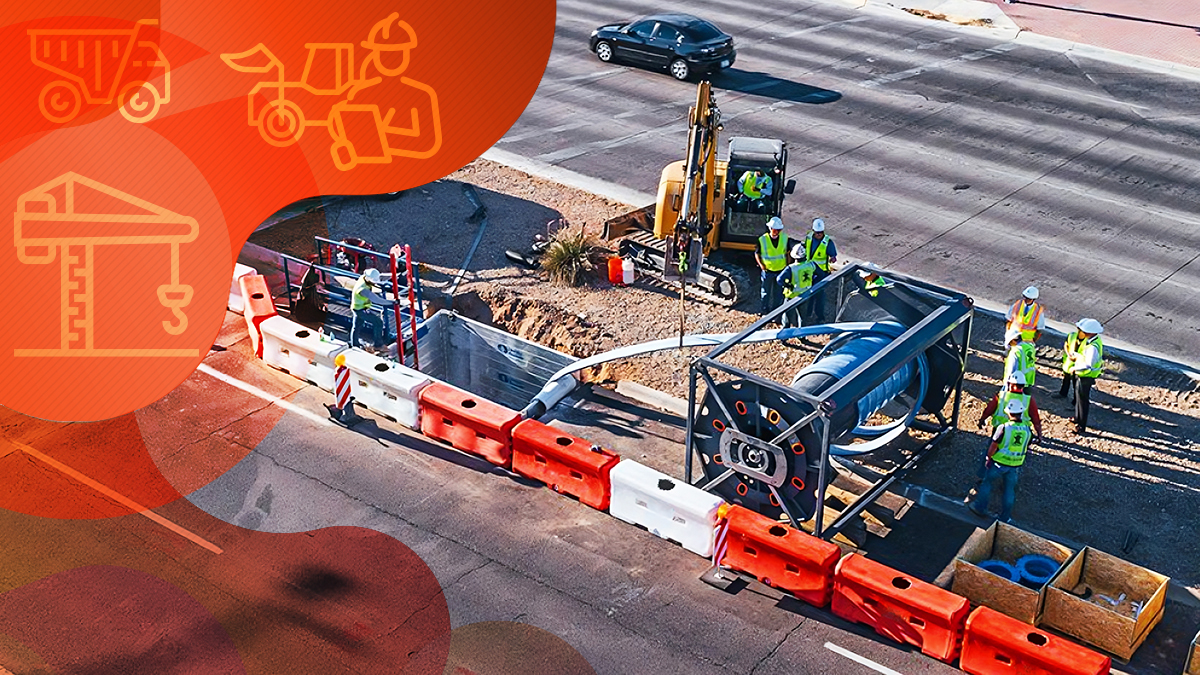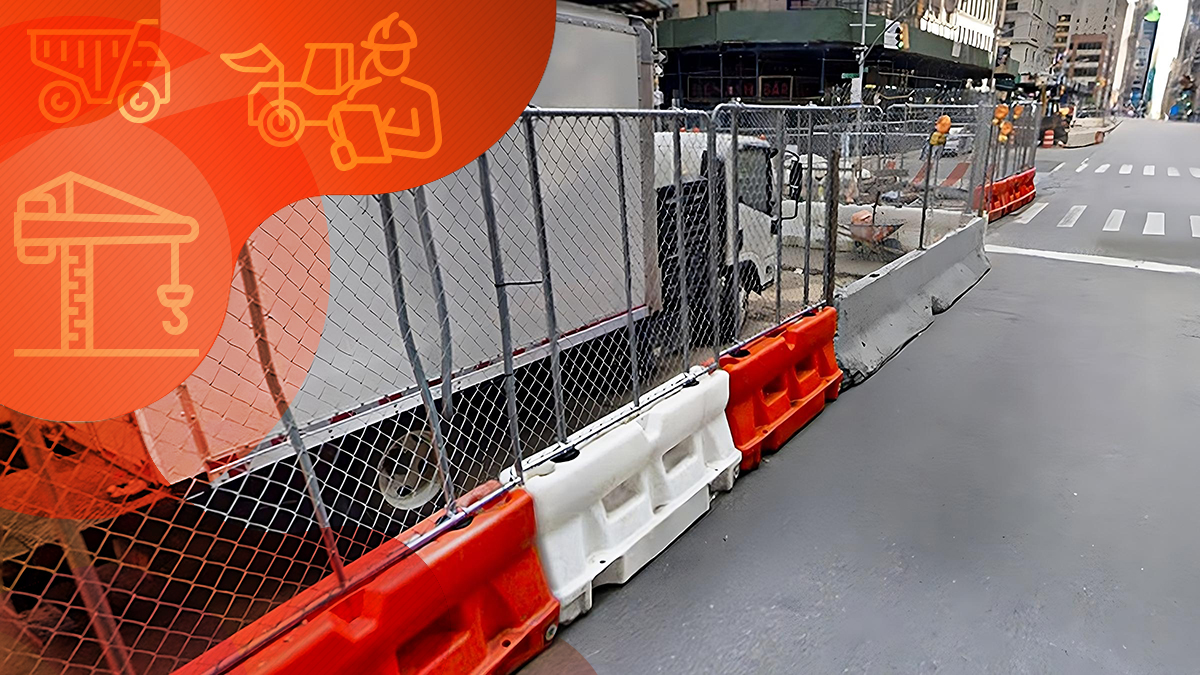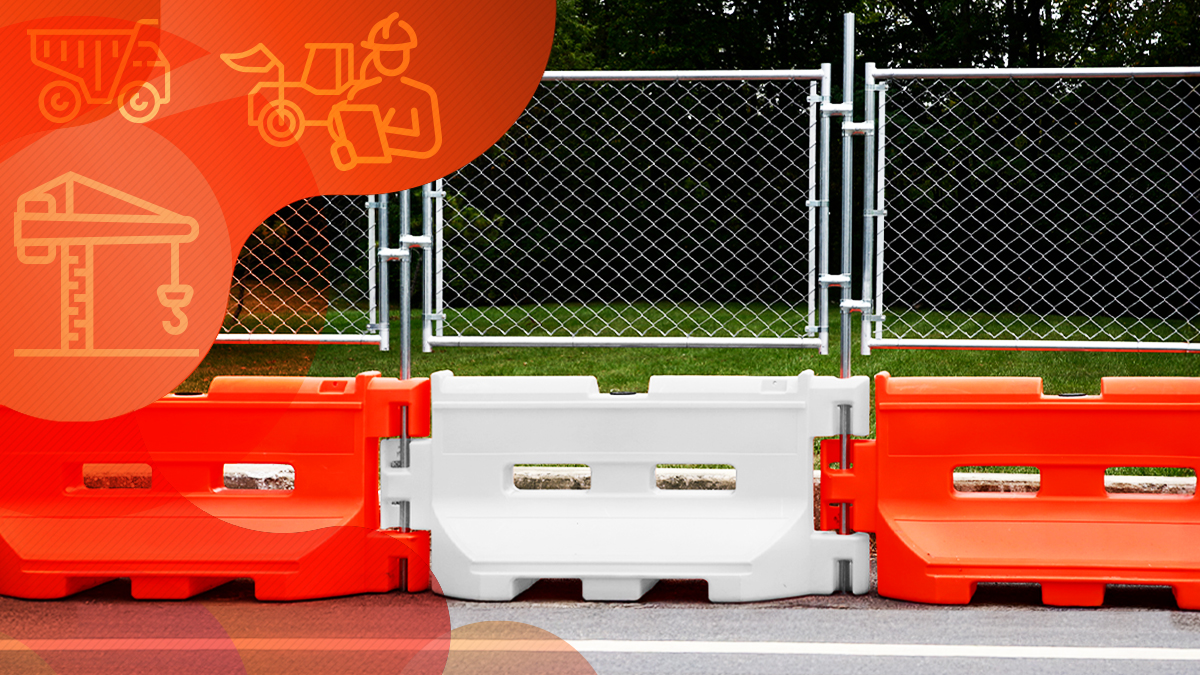Must-Have Items to Start A Fence Rental Business
Learn how to equip your rental company with quality products and generate recurring revenue.

Temporary fence rental businesses make good money. Whether you're a fence installation contractor adding a division to your business, or someone who's starting a whole new business, temporary fence rental is a good industry to get involved in.
Customers like contractors, special event venues, and special event planners have a regular need for temporary fence rentals.
Before your business can get off the ground, it's important to gather the right materials for the job. Every fence rental company needs certain supplies on hand so they can meet the needs of their customers. Below, we've listed must-have items for starting a temporary fence rental business as well as key products for your rental company once it gets off the ground.
Initial Kit for Rental Companies
To start a fence rental company, you'll need to purchase some inventory, equipment, and supplies.
There are many options for temporary fences out there, and it’s easy to get confused about which products are best for your business.
You should always get the best possible products you can afford, and not always opt for the ones with the lowest price points, as they may also be lower in quality.
Quality products are an investment in your company, as they last longer and deliver better results to your customers.
Poor quality fence panels can be more easily moved, damaged or cut by vandals and thieves, potentially placing your customer's property at risk. If that happens, you may be held liable. Even if you aren't, a dissatisfied customer is unlikely to return or refer you to others, leading to a loss of potential future income.
What are the best fence panels to get?
For a rental company, the best choice are chain-link fence panels. They are the sturdiest temporary fence panels available on the market. Since they will be moved constantly, set up, removed, thrown in the back of a truck, and exposed to varied weather conditions, you want a panel that has the sturdiest build.
Welded wire panels can also be used if you choose ones reinforced with extra support bars or corner plates to prevent warping. However, welded wire mesh is usually more susceptible to breaking with constant handling. This makes them more suitable for long-term construction projects where the panels will be put in place once and rarely moved.
Both types of panels can be repaired when broken, but chain-link panels are easier to fix. If the mesh gets cut, you can simply remove the broken wires and replace them with new chain-link fabric by twisting it in place. By contrast, welded wire panels would need to be sent to a welder for repairs.
Welded wire temporary fences are often considered more aesthetically pleasing than chain-link fences, but choosing chain-link panels will help you maximize the revenue from your investment, as they can be used many times without failing and are cheaper to repair and maintain.


Clamps and Bolts
Clamps and bolts are necessary products to create a strong perimeter.
Clamps, along with their respective bolts and nuts, are usually sold together. These items are critical because unclamped panels can be easily dragged, creating gaps between each panel. This will compromise the fence's intended and give unauthorized people a way in.
Here's a tip from a SONCO pro: position the nut so the threaded side faces inward, toward the center of the fenced-off area. This makes it harder for vandals to undo the clamp from the outside.
Make sure to get clamps and bolts with a protective finish against rust and corrosion. If they rust, they become more fragile and may loosen and be easier to break open.


Fence Feet Options
Fence feet, or fence bases, are a must-have item to get alongside the fence panels and clamps. Without them, you won't be able to assemble a temporary perimeter fence.
The most common fence feet are tube stands, made from the same material -- usually galvanized steel -- as fence panels. This means they've been coated with a protective zinc layer that prevents rust and corrosion.
Always check if the fence feet are weatherized. Since they constantly touch the ground, they're exposed to a lot: moisture from the ground, rain, snow, debris, constant motion, and even accidental impacts from people or machinery. On top of that, they need to withstand the weight of the fence panel without failing.
If you’re unsure how many tube stands are necessary per perimeter, use this calculation: the number of panels + 1. For example, if you're buying 50 fence panels, buy 51 tube stands to create a closed perimeter.


A tube stand will support two panels, serving as the right-side foot for one panel and the left-side foot for the adjacent panel. At one point in your perimeter, you'll need to create an entryway. If you're not providing gates for your customers, one panel will need a standalone tube stand on one side. This allows that fence panel to be moved to create an opening and then placed back to close the perimeter.
To guarantee your fence stays in place, it’s a good idea to look for ballast options to use on top of the tube stands. While there are DIY options available, for professional reasons it’s best to offer your customers something more aesthetically pleasing and reliable, such as Anchor Weights.
In addition to all the products above, you'll also need a small truck to carry fencing products from one jobsite to another, which you probably already have if you are a fence contractor.
Key Products for Your Rental Company
Once your rental company is off the ground, it's helpful to purchase some additional materials to give your customers options and to offer a better service overall.
Fence Gates
Most fenced-in areas need one or two fence gates to give people and vehicles easy access. Without gates, panels must be moved every time someone wants to get in or out, and this constant movement can damage both tube stands and fence panels.
By providing gates, you offer a better solution to your customers while also protecting your fence panels from unnecessary wear and tear. This helps your panels last longer, giving you a better return on your investment.
It's worthwhile purchasing gates of different types and sizes since some gates are intended for foot traffic and others for vehicular traffic.
If the perimeter is around a construction area, you can assume they'll need to move large equipment and machinery. In these cases, it's best to get a gate kit consisting of hinges and a rolling wheel. With this kit, you can turn a full-size panel into a gate. By using this kit on two panels side-by-side, you can create an extra-large gate.
Anchor Fence Bases
Some companies use sandbags or cinder blocks in place of Anchor Fence Bases, but you'll quickly want to buy something more permanent. Anchor fence bases provide more stability, and they're longer lasting.
For instance, sandbags quickly deteriorate in the sun and usually last for only one rental use. When they break apart, they create a significant mess and can end up costing more due to the labor involved in filling, deploying, and replacing them at customer locations.
One Anchor Weights can take the place of over 10 sandbags and they last for many years. Made from recycled plastic, they are also recyclable themselves, making them a sustainable alternative to sandbags.
Another excellent option is the Anchor Block, which serves as a 2-in-1 solution by replacing the tube stand entirely. It functions as both a fence foot and a ballast, and is also made from recycled plastic.
To learn more about Anchor Bases, watch the video below:
Forklift
Once you have enough money to invest in your business, a forklift can help expedite the loading and unloading of your trucks. Using a forklift shows that your business is professional.
A forklift allows you to unload a full rack of fence panels at once, reducing the risk of potential damage during manual handling.
Using forklifts for heavy lifting not only improves efficiency but also helps prevent injuries to your workers, making your rental business safer and more productive.
Know Your Resources
Starting a new business is challenging, so it's important to leverage your resources and have a reliable partner by your side.
SONCO offers every product necessary to kickstart your temporary fence rental business. Whether you're a fence contractor looking to expand into rentals or starting fresh, we provide everything from chain-link panels to tube stands, Anchor Bases, and more.
One of the greatest benefits of partnering with SONCO is our extensive nationwide distribution system. This means you can secure your first rental customer, finalize the deal, receive your downpayment, and then order all necessary supplies.
We guarantee expedited delivery, and can even deliver directly to your customers' locations, saving you transportation costs for your initial fence rental services.
In addition to providing the products you need to get started, we’ve created a FREE Marketing Guide to help you grow your business. Download it today to learn how to attract customers, optimize your online presence, and stand out in the competitive rental market.


Trend now

Reducing Impact Damage with Water-Filled Plastic Jersey Barriers
Understanding the effects of barrier materials on vehicles and their occupants can help improve road safety.

Choosing Between Concrete or Plastic Jersey Barriers
Not all barriers are built the same. Here’s what to know before choosing between plastic and concrete.

Advantages of Water Barriers with Fence Toppers
Learn how a fence topper transforms water barriers into a more secure, private, and effective work site solution.

